Learning food regions: Limburg meets Metropolitan Amsterdam – meeting March 29
Accelerating short chains. Regional food is more relevant than ever. Over the past 3 years, short chains, urban agriculture networks, educational institutions and youth networks have joined forces in the Amsterdam Metropolitan Region to develop a robust, regional and regenerative food system.
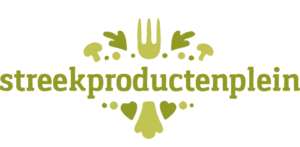
In Limburg, a three-year trajectory (LOF programme) was completed, in which a short chain platform was realised through collaboration with various chain partners; the Streekproductenplein. As a spin-off, the Streekproductenplein has been supplying regional products to the Province of Limburg since the end of 2022, as a preferred supplier within the concession ‘Catering Services Province of Limburg 2022-2028’ of the Province House in Maastricht. In addition, Streekproductenplein participates in the annual winter event Magisch Maastricht Vrijthof for the period 2022-2026, which showcases regional products.
This is an exciting development for both regions, where they can learn from each other and perhaps co-create.
To this end, a grant has been made available by the regional development agency LIOF to set up the first exploration for cooperation.
We launched this exploration on March 29th last with a visit by the Limburg network to the MRA for a peer2peer network exchange. The MRA partners welcomed the Limburg guests at the Food Forum in Almere.

Morning sessions
Mark Frederiks, Amped/L2L: roll-out strategy in the MRA, Local2Local and Dutch Short Chain Collective
Mark opened the day by outlining what has been achieved so far in Amsterdam and with hubs in other regions. Mark delved into the many challenges of Local2Local and the process that has now been followed for almost 4 years in the MRA roll-out.

Bert Vliex, F-Fort / LOF / Streekproductenplein: Developments in Limburg
Bert took attendees through the Limburg region and what the F-Fort and other partners have developed. This presentation highlighted the fact that despite the differences between the regions, there are similar challenges in both Limburg and the MRA. The motivations were also the same: the will to reconnect better with the food we consume and the people around us, for a healthier and more sustainable society.
Lunch: delicious local and vegan, courtesy of the amazing Food Forum team!
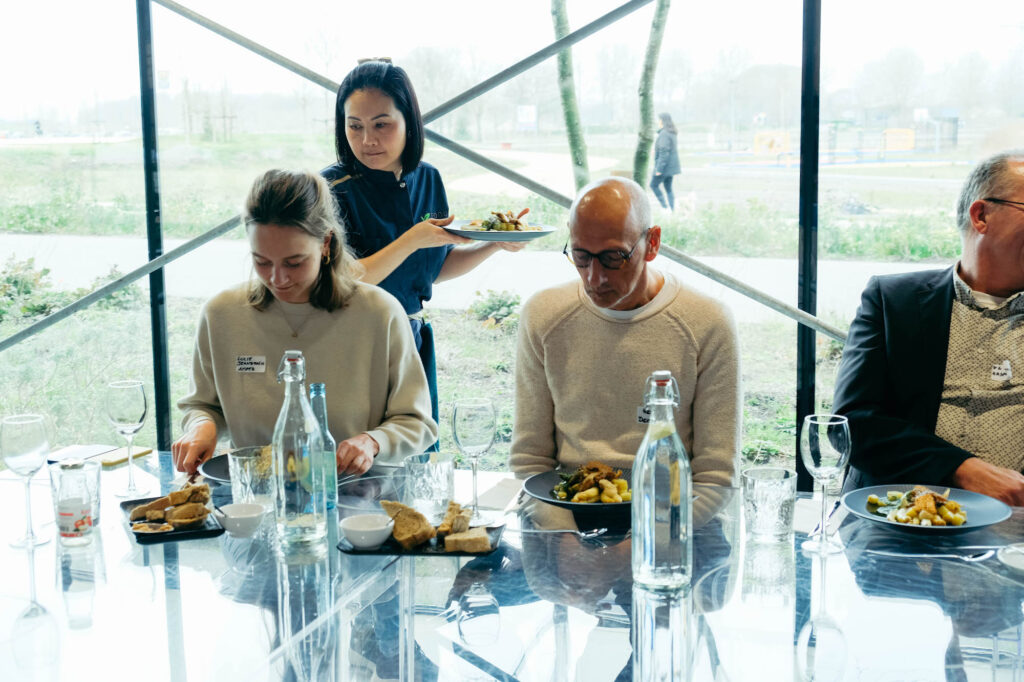
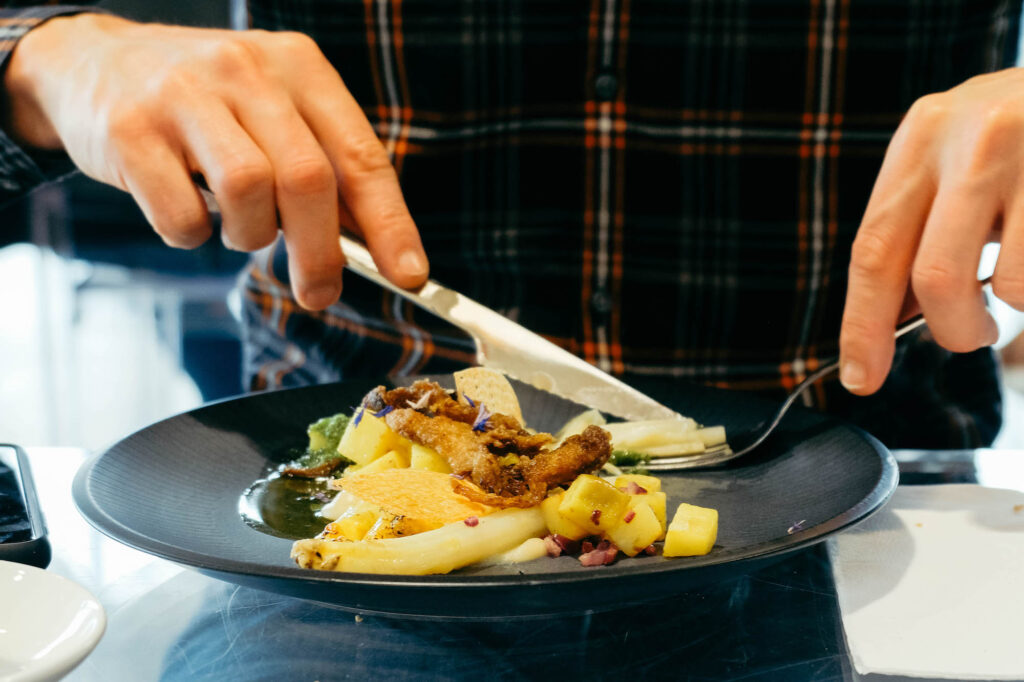
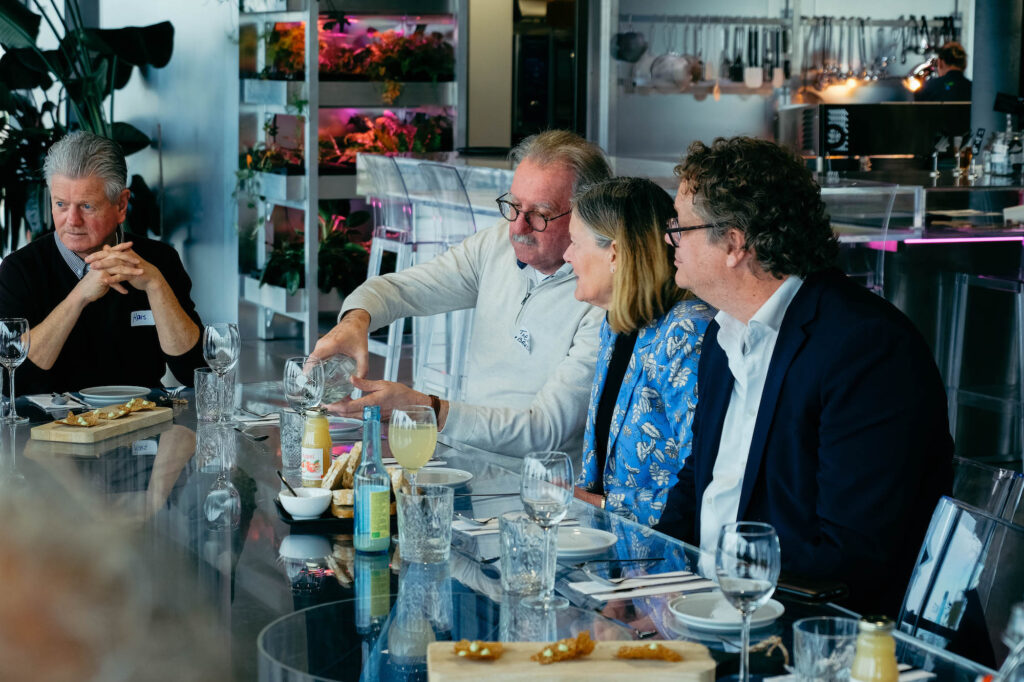

Afternoon sessions
Bauke van der Veen, Flevofood & Dutch Short Chain Collective (KKCN)
Bauke elaborated on the concrete challenges (efficiency, competition, true cost true price, finance) of Flevofood Association and partner chains and explained the latest developments around the KKCN.
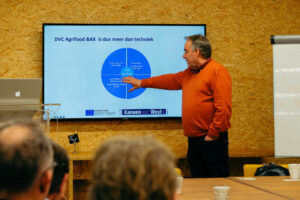
Jan Wester, Data Value Center Agri & Food
Jan explained the technology which enables short chains to scale up and how the DVC Agri & Food Short Chain project will further develop IT solutions for business development.
The key message: technology is a great asset to support short chain actors.

Jeroen van Herk, OAK Consultant / De Groene Stelling
The manifesto of The Green Defence Line: “Time for a new perspective for farmers, the landscape and the inhabitants of the Amsterdam Metropolitan Region.” The Green Defence Line aims to restore the connection between city and country, producer and consumer, man and nature and between the Defence Line forts.
- A (regenerative) food landscape that is healthy, biodiverse, climate-adaptive and accessible. Good for farmers and residents;
- A renewed landscape for the future with the preservation of existing and new qualities, in line with the DNA
- A social, active, innovative movement that reconnects rural and urban areas (people, food, investments, etc.)
- Coherent development of the MRA landscape

Leon Feenstra, PhD Student Inclusive Food System Transition – Athena Institute, VU Amsterdam / FoodCLIC
FoodCLIC aims to build strong ‘science-policy-practice interfaces’ to contribute to informed and integrated food policy and food-oriented spatial planning. This contributes to progressive and resilient urban food environments, providing citizens, especially in vulnerable groups, with access to healthier and more sustainable food.
There was great enthusiasm from both MRA and Limburg participants: we all want local food to create a society in which robust, regional and regenerative food systems thrive. To this end, interregional collaborations are essential to share lessons and experiences and come up with solutions to common challenges together.